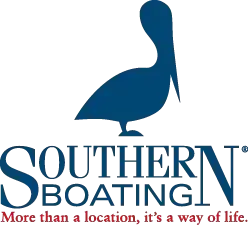Rebounding goliath grouper spurn FWC workshops
FOR A 10-YEAR-OLD BOY ON VACATION FROM OHIO, the offshore fishing trip with his grandfather was enough of a treat. Heading out from the New Pass Inlet in Sarasota, Florida, day boats didn’t have to travel far for tourists to have a successful day of Goliath Grouper fishing in the 1960s.
I can still remember the high pitched noise as line played out and deckhands came running to help Gramps as he struggled to land a 321-pound goliath grouper. The battle lasted nearly an hour, and for the retired bank messenger who had moved from Cleveland to Siesta Key, it was the catch of a lifetime.
Since 1990, it’s been illegal to land the goliath groupers. Overfished in the ’70s and ’80s, these beasts can top 800 pounds, measure over 8 feet in length and have been known to live at least 35 years—some marine biologists believe up to 50 years.
The Florida Fish and Wildlife Conservation Commission (FWC) is hosting 15 workshops across the state from the Panhandle to Naples through October to gather public input on goliath grouper management, including the possibility of a limited harvest season in Florida state waters.
Goliath grouper populations have substantially recovered since the harvest prohibition took effect. According to the FWC, “There have been increases in abundance in certain areas (Tampa Bay, Charlotte Harbor and the Ten Thousand Islands), and the distribution of goliath grouper populations has extended into areas of its former range throughout Florida, including the Big Bend and Panhandle regions.”
Continued regulation may be focused on areas where the species spawns and the young mature. The Ten Thousand Islands off southwest Florida is of particular interest where young goliath grouper spend up to six years in mangrove habitat—a nursery of sorts.
Interestingly, they have been known to form spawning groups of 100 or more. Courtship behavior is regularly observed at chartered wrecks or rock ledges in the eastern Gulf during the full moons of August and September. For boaters and anglers interested in attending one of the workshops, a list of dates and locations is on the FWC website myfwc.com/fishing/saltwater/rulemaking/workshops.
By Alan Wendt, Southern Boating September 2017
